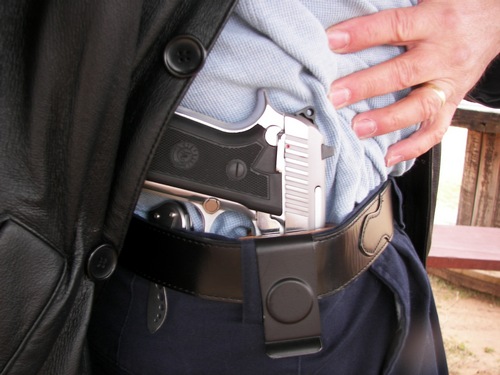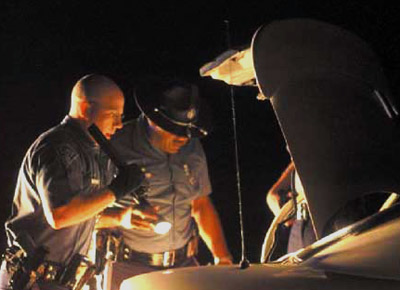Consequences of a felony conviction
Being accused or charged with any crime, misdemeanor or felony, is a serious matter requiring the expertise of a criminal defense lawyer. A felony is defined as an offense that can carry more than 1 year in jail up to life in prison. If the offense carries 1 year or less in jail, it is classified as a misdemeanor. In addition to the possibility of jail/imprisonment, felonies have greater sentencing consequences in the court system and negative ramifications outside of the court system including:
- A felony can carry imprisonment up to life.
- The court can impose up to five (5) years probation for a felony and a maximum of two (2) years for a misdemeanor.
- Sex Offender Registration (SORA) is required upon conviction for most sex crime felonies.
- Travel into Canada is forbidden for a person convicted of a felony.
- A person convicted of a felony cannot own or possess a firearm.
While researching cases, we came across an article written by the Michigan Bar Association regarding the Top 50 Felonies Most Frequently Charged in Michigan in the State of Michigan. This list of cases also is consistent with the caseload that our Macomb County criminal defense lawyers see on the dockets of courts located in Macomb, Oakland, Wayne and St. Clair counties.
With more than 40 years experience specializing in criminal defense, I can say that the majority of our clients facing felony charges have never committed a prior felony and the underlying conduct supporting the felony charge does not involve egregious misbehavior. Nonetheless, a felony charge is possible even for offenses involving simple possession or when a theft involves property valued greater than $1,000.00.
Top Felonies in the Metro-Detroit Courts
Pursuant to the Michigan Sentencing Guidelines, felonies are broken down into categories that determine the accompanying sentence. Punishment for each class is listed below:
- Class A – Life imprisonment
- Class B – Up to 20 years in prison
- Class C – Up to 15 years in prison
- Class D – Up to 10 years in prison
- Class E – Up to 5 years in prison
- Class F – Up to 4 years in prison
- Class G – Up to 2 years in prison
- Class H – Jail or other intermediate sanctions, such as fines
Below is a list of the most prevalent felony crimes that we routinely handle in the Metro-Detroit courts and that also that fall within the top 50 felonies in Michigan.
- Possession of a controlled substance(schedule 1: heroin or cocaine)
- Possession of marijuana (double penalty, 2nd drug crime)
- Possession of methamphetamine
- Possession of MDMA (ecstasy)
- Possession with intent to deliver (schedule 1: heroin or cocaine)
- Possession of analogues (includes prescription drugs)
- Maintaining a drug house or drug vehicle
- Conspiracy to possess or deliver marijuana or a controlled substance
- Manufacturing marijuana
- Drunk Driving 3rd lifetime offense
- Assault with a dangerous weapon (aka: felony assault)
- Assault with intent to do great bodily harm, strangulation
- Resisting/Obstruction police officer
- Fleeing and eluding
- Criminal sexual conduct (1st, 2nd, 3rd and 4th degree)
- Retail fraud 1st degree (5 year felony if the amount involved is over $1,000), Retail fraud 2nd and 3rd degree are misdemeanors
- Larceny offenses (in a building or motor vehicle)
- Home invasion
- Financial transaction device fraud (credit card fraud, regardless of the amount involved)
- Embezzlement ($1,000 – $20,000)
- Uttering and Publishing (14 year felony)
- Carry a concealed weapon
Crime Statistics for Macomb County
The Michigan State Police maintains annual crime reporting statistics for each county in the State of Michigan. For 2017, approximately 50,000 crimes were reported in Macomb County. As criminal defense attorneys in Macomb County, these statistics are meaningful in various ways. The economy, social influences (“me too”), crime waves and police practices are all factors that can have a bearing on crime reporting. Statistics indicate that all larcenies constitute the largest number of crimes reported. Nearly 10,000 larceny related crimes reported which include the following:
- Larceny from a building
- Larceny from a motor vehicle
- Larceny misdemeanors (under $1,000) and Larceny felonies (over $1,000)
- Theft of motor vehicle parts and accessories
Retail fraud (shoplifting) offenses are not included in the above statistic. Separately, approximately 2,500 retail fraud cases were reported in Macomb County for 2017. Retail fraud is classified as a misdemeanor when the amount involved is under $1,000 and a felony if the amount involved is $1,000 or more. The cities in Macomb County that reported the highest number of retail fraud for 2017 were: Roseville (536), Warren (463), Sterling Heights (425), Chesterfield Township (265) and Clinton Township (209). The numbers for these cities are not surprising considering that these areas all have large retail centers and stores (Target, Meijer, Kohl’s, Costco, Sam’s, Walmart) within their jurisdiction.
Drug Residue or $1.00 more than $999.00 May Lead to a Felony Charge!
DRUG CRIMES: Simple possession of drugs tops the list of felony crimes in Michigan. The drug crime of possession of marijuana is classified as a misdemeanor. As I have stated, a felony charge may be lodged for unintended behavior. For example, a person may be charged with felony possession of drugs when a police search reveals a minuscule quantity of drug residue. Felony charges can be prosecuted even though the drug residue is unusable, un-measurable and is scraped from a pipe or from the carpet of a vehicle. In researching this matter, I found that the prosecutor in Harris County, Texas has a adopted a policy to avoid prosecuting those found with drug residue. While this is a step in the right direction, Michigan has not adopted this policy. In addition to residue cases, drug charges may be brought against an innocent passenger of a motor vehicle because drugs are found in a compartment or area of the vehicle within reach, possession or view of the passenger(s).
THEFT & PROPERTY CRIMES: Several other felony crimes fall within the theft offense, or property crime category, including retail fraud, embezzlement, credit card fraud, uttering and publishing. A crime can be elevated from a misdemeanor to a felony without any intent or deliberation to wind up in that position. For example, if a theft related offense (embezzlement, retail fraud 1st degree) involves a claim of loss of $1,000.00 or more, the prosecutor will bring a felony charge. If the amount of loss is $999.00 or less, it is a misdemeanor. The danger and concern that exists is when the alleged victim makes a claim that is greater than the actual loss. Not all property crimes are dependent upon the property value. Crimes such as uttering and publishing, credit card fraud, larceny in a building, larceny from a motor vehicle constitute felonies without regard to the value of property misappropriated. Michigan State Police statistics for 2017 indicate that more than 7,000 crimes relating to larceny were reported in Macomb County.
 Michigan Criminal Lawyer Blog
Michigan Criminal Lawyer Blog







 The recent Court of Appeals case, People v. Koon (which can be read in its entirety
The recent Court of Appeals case, People v. Koon (which can be read in its entirety 


